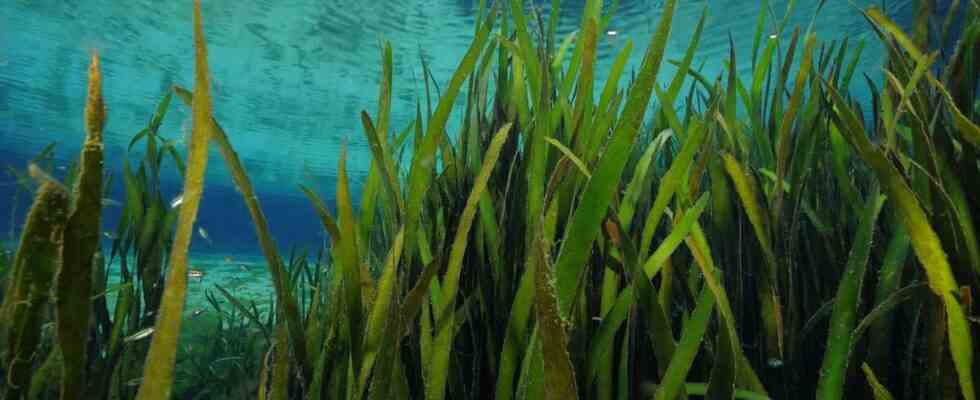Can we combine these two necessities of protecting our skin from the sun and not rotting the planet? Researchers from the University of Barcelona, Spain, have established in a recent study that chemical elements of UV-filtering sunscreens are subsequently found in the rhizomes of Posidonia, these sea grasses essential to biodiversity and life. Mediterranean underwater.
“This study is the first to find the accumulation of ultraviolet filters in sea grasses,” write the authors. Researchers have particularly focused on products containing oxybenzones, an organic chemical component used as an ultraviolet filter and very soluble. Similar study had already been conducted on corals, also concluding that they are harmful to them. In the wake of this, sunscreens that include this element in their composition were recently banned in certain regions of the United States, such as Hawaii, Florida or the Virgin Islands, which thus followed the pioneering Republic of Palau, a archipelago of the Pacific, in this decision.
Photosynthesis affected?
But this study must call for others, particularly to find out whether these components, accumulated by Posidonia, are then also found in the organisms that feed on them. “Although we have not yet tested this possibility, my hypothesis is that these components of sunscreens are also found there”, develops Nona Agawin, one of the researchers responsible for this study published in the scientific journal Marine Pollution Bulletin.
However, its main concern lies in the possible alteration of the photosynthetic capacities of Posidonia caused by these components. “If we find that these compounds, in addition to accumulating in the tissues, also affect their photosynthesis, then we are going to have a problem”, explains the academic. “These sea grasses play an important role in the ecological balance of Mediterranean coastal areas. They oxygenate the water, stabilize the sediments and harbor a wide variety of micro and macro-organisms,” notes Nona Agawan.
Therefore, the question of the prohibition of sunscreens which these harmful elements enter into the composition must arise. Particularly for spaces subject to high tourist density, such as the Balearic Islands, the place where the study took place, but also for most of the North Mediterranean arc.

